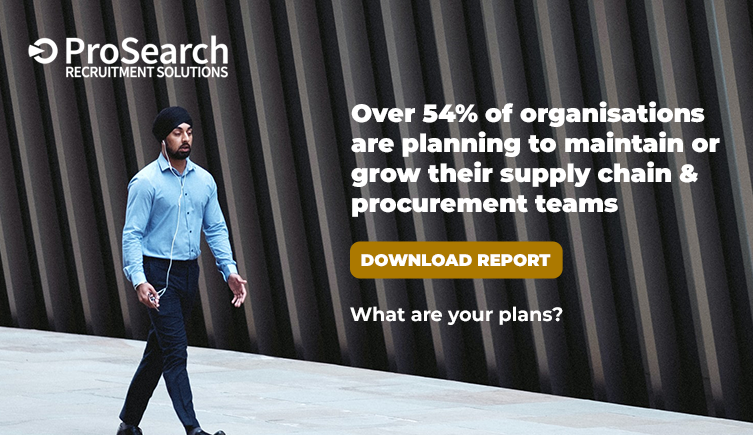Everyone will have their challenges & opportunities – Employers, Contractors, Management Consultants, Agencies and even HMRC.
Simply speaking, HMRC want to collect more tax, remove extreme contractor or self-employed (PSC) tax avoidance schemes and raise more Employers NI revenue.
It’s easy to see why HMRC saw this some years ago as a potential goldmine for the treasury, raising more tax and in a booming economy this could have been realised.
How is this impacting the Private Sector?
The economy is fragile, some experienced Interims have retired or withdrawn from the PSC contractor market, the pandemic and Brexit have increased economic uncertainty and although this could have been an opportunity, many Interim consultants and Contractors have found that projects they would normally access, being taken up by management consultancies.
Some larger employers having decided not to take the risk of any future tax challenges, have engaged with delivery/results based, fixed cost or gain share project consultants, which the majority of solus contractors cannot entertain.
At a time when the economy needs to be agile, when businesses need to access experience quickly and when the current private sector rules actually suit that, it seems strange that government would introduce legislation to restrict this. Combine this with the changing market conditions, is it really now going to attract a significant increase in tax revenues?
Although we should all be experts by now, there are grey areas to be considered and future changes to legislation will be needed.
How did we get here?
HMRC have operated IR35 across the Public Sector since 2017 following a number of high-profile tax avoidance schemes and were due to introduce it into the Private sector in 2020, deferring this until 6th April 2021 following the Covid19 outbreak. There may be another extension in the March 21 budget, however this is definitely not guaranteed and at present HMRC are committed to its introduction, even though they have openly admitted in online forums and support webinars that IR35 determinations are subjective and there are still areas of guidance required from government.
All this means that there will be employers and contractors who could misinterpret their status, which leaves the potential of retrospective claims for an incorrect status decision years later.
It’s therefore important to understand the risks involved, whether you’re a business with contractors, or an Interim contractor or freelancer working through your own (PSC) Limited Company.
Employers Responsibilities
Employers are now responsible for defining the status of any engagement and must issue an SDS (Status Determination Statement) at the outset when the contract is agreed. This will define whether the contract falls inside, or outside of IR35 and whether tax is collected at source through the PAYE/NIC company payroll, or the contractor can invoice and pay tax through the normal channels via their (PSC) Limited Company. If an agency is involved and they are deemed as the hiring company, they will manage this.
HMRC are encouraging everyone to use their CEST online assessment tool which can be used by employers, contractors and agencies to check if a specific engagement should be classed as employed, or self-employed for tax purposes. However, it is now the responsibility of the employer to issue the SDS to all parties in the chain when an engagement contract is agreed.
In essence, if employers have shown what is defined as ‘reasonable care’ in making this decision they should be free from future tax challenges, using the CEST tool supports this, however HMRC have been forced to admit that CEST usage is not a guarantee, it is solely reliant on the information put in and if incorrect, you will be liable.
Note: HMRC enquires into thousands of returns completed by UK taxpayers every year. If there is an error leading to a loss of tax, HMRC will often apply a tax-geared penalty for failure to take ‘reasonable care’. Penalties can apply in one of three circumstances where the outcome is a loss of tax:
- Where the taxpayer makes a careless error (when providing information to HMRC)
- When a 3rd-party supplies information that is false or deliberately withholds information, and
- When a taxpayer fails to notify HMRC that an assessment is too low.
Small Company Exemptions
Just to confuse matters, there is an exception. If during a 12-month period, a business (the hiring employer) is deemed to be a ‘small’ company, then the onus falls back on to the Interim consultant, or contractor to make their own decision on the taxable status.
Small clients are businesses that meet 2 or more of the following criteria:
- Turnover – not more than £10.2 million
- Balance sheet total – not more than 5.1 million
- Number of employees – no more than 50
Any contractors engaged by a small company will continue to operate the IR35 rules as they do currently – and the responsibility for determining their employment status will not pass to the client.
Key Contract Information
To ensure any contract is outside of IR35, it’s important to focus on process and compliance from the outset. Developing the right SDS assessment and drafting the correct engagement contract is essential. Simply adding a ‘Statement of Works’ and set of deliverables will not suffice, unless they are real and actually tied to the payment schedule. It is also useful to include a contract review every 3 to 6 months, to ensure the scope of work hasn’t changed.
The contract needs to focus on the true nature of the engagement, the role and deliverables expected, also the ability to provide own personal equipment and freedom of control and the ability to work with other clients, the potential for substitution (this can be done with agreement of the hiring company) and the need for any contractor to manage and pay their own business costs without reliance on payment from the employer, all of which can be checked through the CEST tool.
It’s also generally safe to assume that any contractor will be working inside IR35 if they are working in a ‘Business as usual’ role, working as any employee would, with equipment supplied and / or management responsibility, covering for a period of cover for another permanent employee, for example a maternity cover contract. In these circumstances the salary and tax would be payable through the company payroll and these roles will commonly become ‘fixed term’ roles rather than day rate contracts.
All this sounds simple, so what’s all the fuss about?
In the majority of cases, it will be simple to define whether any role is inside or outside of IR35, it will eventually settle down, everyone will get used to the new systems, contracts will become compliant and Interims operating at the ‘Interim consultancy’ higher end of the market will manage their risk, to ensure it works from a contract compliance basis.
However, what is the point? Companies in the current climate will be increasingly risk averse and may apply blanket PSC bans and although the permanent recruitment market is getting busier, there is a strong possibility that there will be less people employed and most of the contractor/consultancy roles will migrate towards the medium to large consultancy operations that will take up the vacuum and ‘offshore’ some elements of these activities.
Will this really increase tax revenues and will it create a more agile economy that can respond to the challenges all businesses will face over the next 3 to 5 years? Probably not.
Risks & Opportunities
HMRC
Risk – Is this the right time to fight this battle, in the middle of a global pandemic, potential for further economic downturn and Brexit? Creating more cost and inflexibility for employers, may not be what the government needs right now.
Opportunity – very little in the short-term, however it will tighten up compliance simply by the threat of tax liabilities and when the economy is better, it may provide greater revenue. However, the private sector is very capable of shaping its response to heavy handed HMRC tax legislation, so unlikely.
Employers
Risk – Higher costs, increased workload, loss of key talent if employers introduce blanket in-scope bans on PSC’s (and the associated delays to key projects) and the threat of retrospective determination changes and future tax liabilities.
Opportunities – If you manage the process correctly, remove blanket bans on PSC’s and review each assignment as an individual case, you will get the pick of the best talent. Also, work with partners who can provide you with different ways to access that talent to reduce costs.
Conclusions
The jury is out, but expect to see innovation in the Management Consultancy market and it would make sense to take advice quickly if you haven’t already, establish the right processes and ideally access to a pool of talent to help you survive, thrive and importantly be compliant!
If you would like to discuss your concerns and questions and the support to give you peace of mind, contact Prosearch and set up a call with one of the Partners. For a free health check email: info@procurasearch.com
We provide free advice, access to professional IR35 guidance and the support to recruit solus accredited Interim consultants and project teams.
Useful Links
- Check employment status for tax – GOV.UK (www.gov.uk)
- Understanding off-payroll working (IR35) – GOV.UK (www.gov.uk)
- Business tax: Off-payroll working (IR35) – detailed information – GOV.UK (www.gov.uk)






